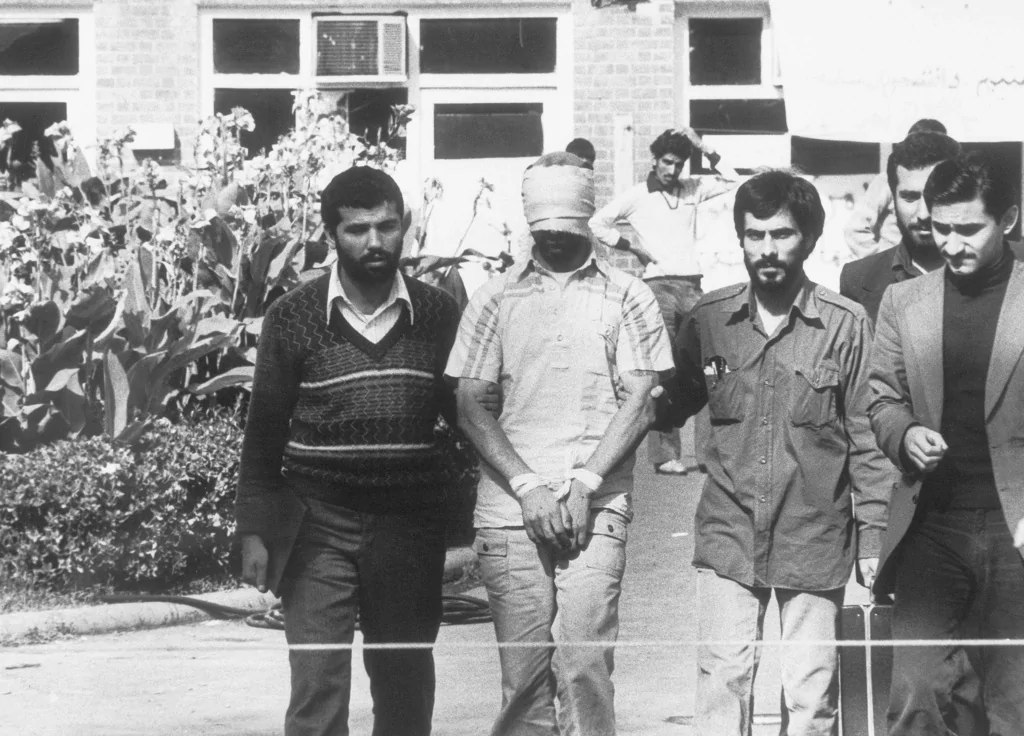
October surprises have become a staple of politics, with voters and viewers eagerly anticipating a revolutionary reveal that will change the dynamics of the election.
An October surprise is any event that suddenly changes the dynamics of an election in the preceding month. It was coined in 1980, but October surprises have been happening since the 19th century.
Here are the biggest October surprises in history:
1980: Possible Iranian hostage release
In the event that brought the concept of an October surprise to the national lexicon, then-President Jimmy Carter had been trying to negotiate the release of 53 American hostages held by Iran since the previous November, a crisis that had severely damaged his presidency. By October, the Reagan campaign thought that the Carter administration may be close to striking a deal with Tehran. Reagan campaign manager William Casey warned that such a release would be an “October surprise” that could reverse Carter’s fortunes.

Such an October surprise didn’t happen, with Tehran opting to wait until after the election to release the hostages. Despite this, worry within Reagan’s campaign was so high that it formed an extensive intelligence network to try and find signs that a deal had been struck, including the close monitoring of military air bases.
Democrats have since alleged that Reagan struck a secret deal with the Iranians to wade off an October Surprise.
Caspar Weinberger indictment in Iran-Contra scandal
Despite major foreign policy successes, including a crushing victory in the Gulf War and the fall of the Soviet Union, incumbent President George H.W. Bush was in a close race against Democratic candidate Bill Clinton and independent Ross Perot. His chances took a turn for the worse four days before the election when Caspar Weinberger, Reagan’s defense secretary, was indicted on charges of perjury and obstruction of justice during the Iran-Contra scandal.
The indictment hurt Bush for several reasons, not least of which was that he served as the No. 2 official in the Reagan administration. The indictment cited a diary entry that contradicted a claim made by Bush, possibly implicating him in the scandal after he appeared to have put it behind him. Republicans were quick to raise an outcry over the timing of the indictment, arguing it was politically motivated.
The scandal helped cost Bush the election, making him the first incumbent Republican to lose reelection since 1932.
2016: Access Hollywood tapes and Hillary Clinton’s emails
October 2016 contained a slew of surprises that negatively affected candidates Donald Trump and Hillary Clinton.
On Oct. 7, the Washington Post released a recording from a 2005 video of Trump making lewd comments about women to Billy Bush while on their way to film an episode of Access Hollywood.
“When you’re a star, they let you do it. You can do anything. … Grab them by the p****. You can do anything,” Trump said.
The remarks drew outrage from many, including some major Republicans, such as Sen. John McCain, who withdrew their support. Trump quickly apologized and dismissed the remarks as “locker-room talk.”
Almost simultaneously, WikiLeaks began publishing a string of emails obtained through another group hacking Hillary Clinton campaign chairman John Podesta’s email account. The emails contained several damning revelations, including the apparent leaking of Democratic primary debate questions to her beforehand and the expression of some views that contradicted her public stance.
Her fortunes were further tarnished by FBI head James Comey’s announcement that he would reopen the investigation into Clinton’s use of a private email server for business, reinvigorating allegations of corruption.
While the scandals damaged each candidate, Clinton’s October surprises helped prove instrumental in her defeat.
2020: Hunter Biden’s laptop
Three weeks before the 2020 election, the New York Post published a paper with the cover “Biden Secret Emails.” In it, under the headline, “Smoking-gun email reveals how Hunter Biden introduced Ukrainian businessman to VP dad,” an article cited data recovered from the first son’s laptop holding that then-candidate Joe Biden lied about being unaware of his son’s sketchy business activities.
Several major social media outlets suppressed the story, ensuring it didn’t gain too much ground before the election. The suppression of the story was decried by Republicans as election interference, possibly doing enough to swing the election in Biden’s favor.
CLICK HERE TO READ MORE FROM THE WASHINGTON EXAMINER
The scandal would go on to dog Joe Biden for his entire administration, with a House investigation launched into the corruption allegations. Republicans came close to impeaching him over the corruption allegations but stopped short. Congressional Republicans made the investigation into Hunter Biden the focal point of their agenda in 2023.
After Joe Biden announced he was dropping out of the 2024 race in July, focus on the laptop and allegations largely fizzled out.






